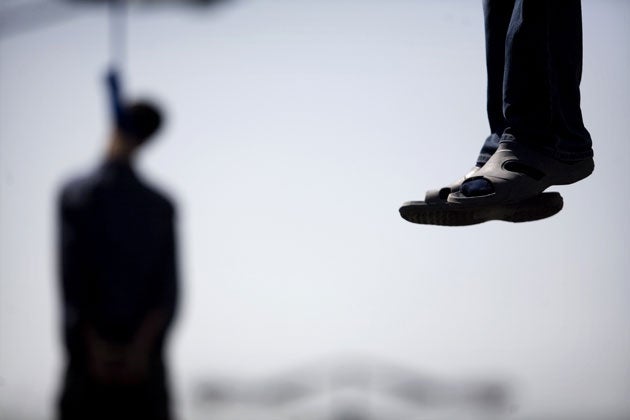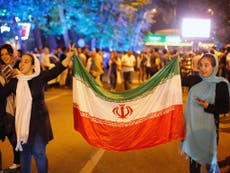When EU companies work with Iran, they run the risk of providing the tools for oppression
Philip Hammond visited this week and announced that British businesses have a “huge appetite” for trade relations

The UK along with the other world powers reached agreement last month with Iran to curb elements of its nuclear programme. With the gold rush mentality infecting Germany, Italy, Austria, France and Switzerland to secure billion dollar deals, their investments are far from risk-free and may create an unseemly backlash.
The Faustian bargain - a feeble nuclear deal in exchange for the lifting of economic sanctions - has pushed the vision of a free and democratic Iran into a dim distance. Put simply, a sizable chunk of the estimated $150 billion in sanctions relief will be used to repress Iran’s civilian population. One of the greatest beneficiaries is the hard-line Revolutionary Guard Corps (IRGC) with its extensive tentacles in the economic realm wielding control over strategic industries and black market enterprises.
Take the case of Western technology used to execute Iranians. Just last month, the CEO of the Austrian giant crane manufacturer Palfinger described Iran as a “promising market” with great needs, although it has been alleged that at least one Palfinger crane was used in an execution after being resold to Iran.
Iran is currently murdering prisoners at the rate of more than three people per day. 694 executions have been carried out as of mid-July, approaching the total number of executions in all of 2014. Amnesty International has warned that state-sanctioned deaths could top 1,000 by the end of the year.
There is no shortage of evidence of how in the past Western-supplied goods became tools of repression. This is best illustrated by the salient example of the former Finnish-German venture Nokia Siemens Networks, which supplied censorship and surveillance technology to Iran allowing the IRGC to monitor and disrupt mobile and internet usage of pro-democracy activists during the Green Movement against the officially declared victory of President Ahmadinejad in 2009.
Iran's trade with the EU last year totalled €7.6 billion and officials from different member states have already flocked to Tehran to get a piece of the boom-time pie which could grow by 400 per cent by mid-2018. The EU's biggest trading giants have wasted no time in gaining a head start in the race to win billions of euros’ worth of business.
Germany's vice chancellor and economic minister, Siegmar Gabriel, was the first high profile Western politician to visit Iran, heading a delegation of industry representatives including Siemens, Mercedes-Daimler and Volkswagen. Germany exported €2.7 billion of services and goods to Iran in 2014 – an increase of almost 30 per cent compared to the previous year.
Philip Hammond visited this week, together with a delegation of business leaders, and announced that British businesses have a “huge appetite” for trade relations. He was the first Foreign Secretary to set foot in the country since 2003, re-opening the British embassy in Tehran which was closed four years ago after it was ransacked during a protest against British-imposed sanctions. The energy company Royal Dutch Shell is extremely keen to rekindle business, announcing the slated release of $2 billion in frozen Iranian assets.
Following in the footsteps, Italy's foreign minister promised Iran a $3 billion line of credit. French car maker PSA Peugeot Citroën announced the re-establishment of commercial ties and plans to manufacture cars locally and its rival, Renault SA, is in talks to buy a minority stake from its Iranian state-controlled joint venture partner Pars Khodro. It also emerged that France's foreign minister Laurent Fabius said “around a hundred” French business leaders will travel to Tehran in September.
It is a shame the EU, founded first and foremost to preserve European security, has chosen to throw this principle, and many others, out of the window for economic benefits.
Julie Lenarz is the Executive Director of the London-based Human Security Centre. Benjamin Weinthal is a Berlin-based fellow for the Foundation for Defence of Democracies



Join our commenting forum
Join thought-provoking conversations, follow other Independent readers and see their replies